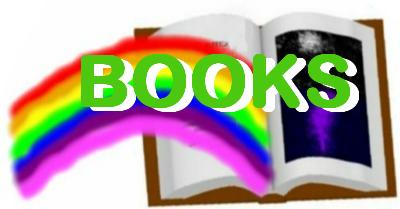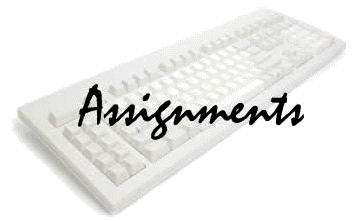
![]()
Description: English 0310 is designed to help students improve their comprehension of college-level material. Students will work independently and in groups to develop strategies for understanding written text. They will learn how to recognize basic organizational patterns and how to use these patterns along with other necessary elements of language and text structure at all stages of the reading process.

|
You need to schedule SIX to NINE HOURS every week outside of the classroom for working on this class (online, writing, researching, discussing, and most of all, reading). If you do not, you cannot expect to do well. |
![]()
"The only effective way to read, is to re-read."
The word "effective" here means being an active reader. This means that you shouldn't simply read the material without making any marks and underlining in your book(s). Don't think of an assignment as just another thing to read; think of it as a way of connecting with the material. Be creative when it comes to reading. Ask hypothetical questions that will help you create a scenario. This is what most professors refer to as "analytical thinking." Learning isn't just about names and dates and facts and numbers, it's also about HOW and WHY (the significance), and sometimes the WHAT IF?. It is important that you transform from being a passive reader, which some of you have been trained to be, and engage in active reading. Think for yourself and determine why the material your are reading is important. It is a good idea to underline key concepts and make both a mental and written note of any questions you might have. Make a point to find anything you can logically disagree with. More than likely, your professor will not penalize you for presenting a cogent counter-argument; just as long as you provide evidence from the material for your position.
Contrary to popular belief, you will not get more money back at the end of a semester for returning a book that isn't marked up, or even for one that hasn't been read. Most courses are primarily based on reading textbooks, as well as secondary sources, and sometimes primary sources. So the best thing to do for yourself, and ultimately your grade, is to READ, then re-READ, and finally, re-READ again. [Adapted from <http://academics.utep.edu/Default.aspx?tabid=8639>]
Owen M. Williamson, MA
209 Education Bldg.
Tel. 915-747-7625 or 915-747-5693. Fax 915-747-5655
E-mail
omwilliamson@utep.edu
homepage
http://utminers.utep.edu/omwilliamson
"It would appear that young people today are doing very little reading of any kind. In 2004, the National Endowment for the Arts, consulting a vast array of surveys, including the United States Census, found that just 43% of young people ages 18 to 24 read literature. In 1982, the number was 60%. A majority do not read either newspapers, fiction, poetry, or drama. Save for the possibility that they are reading the Bible or works of non-fiction, for which solid statistics are unavailable, it would appear that this generation is less well read than any other since statistics began to be kept. "
Excerpted from Just How Stupid Are We?, by Rick
Shenkman. New York, Basic Books, 2008. 
|
OTHER
READING RESOURCES:
"A Crime Against Kansas" speech. (resource)
Rudyard Kipling's "Mcdonough's Song."(Poem) (resource)
"As Simple as ABC," by Rudyard Kipling (fiction-resource)
"Immigrants are a blessing, not a problem."
(resource)
Extra resources: Other Useful links:
Seven Habits of Highly Effective Readers Info about Common Reading Disorders Ten Tips on Improving reading with Learners with Disabilities Encyclopedia Britannica Online Purdue University Online Writing Lab MS Word Template for MLA Format
COURSE
DESCRIPTION
|
|
For educational purposes only. |
| Owen M. Williamson - Education Bldg 211E - phone: (915) 747 7625 - fax: (915) 747 5655 |
| The University of Texas at El Paso - 500 W. University Ave. - El Paso, TX 79968 |
| Important Disclaimer |

Open Courseware | OCW |This work is dedicated to the Public Domain..


